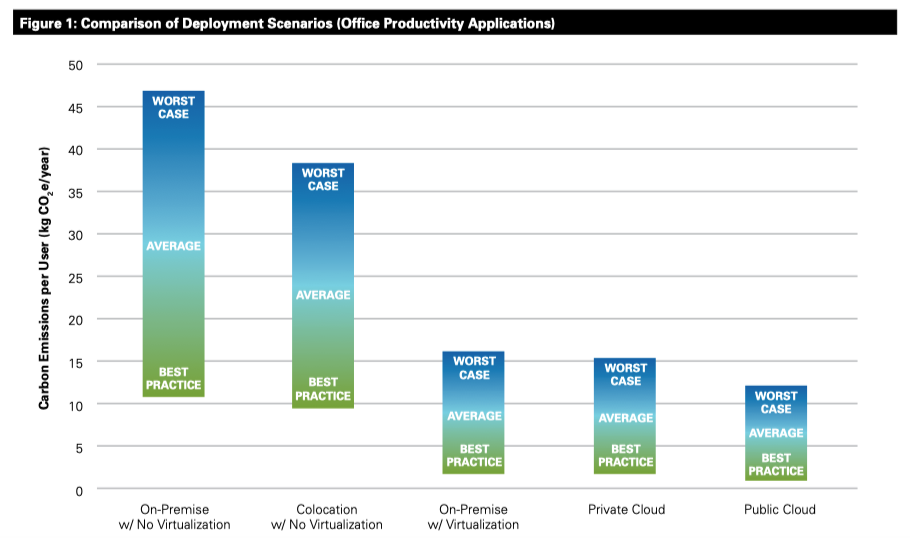Who feels a sense of urgency to be a part of the solution to the climate crisis? How can software engineers be involved in projects that contribute, even in a small way, to preventing global warming to less than 1.5 Celsius by the end of the century? The short answer is yes there are numerous use cases in which software engineering can positively impact the planet and climate change.
Glasgow Climate Summit
Views of those involved vary widely in relation to the degree of success of the recent Glasgow Climate Summit. British host of the event, Boris Johnson, told leaders that it was ‘one minute to midnight’ on the doomsday clock. But at the 11th hour of the Summit during which India and China, due to their reliance on coal, changed the wording of the agreement to ‘phase down’ rather than ‘phase out’ coal, Johnson observed the result was ‘tinged with disappointment’ and giving the result just over ‘6 out of 10’.
The climate summit at the least appeared to facilitate a sense of urgency among nations of moving more quickly towards the goal of mitigating the impact of climate change.
Through the COP26 negotiations in Glasgow, 140 countries strengthened their 2030 emissions targets, which was an improvement on the previous Paris Agreement.
“Glasgow has not closed the emissions gap in 2030, which is vital to keeping 1.5C alive, but it has set up an urgent process to address this gap, inviting countries to submit more ambitious national climate targets by the end of 2022,” Bill Hare, senior scientist and chief executive at Climate Analytics, said.
The real test of COP26 was a success is whether the promises made are turned into reality.
Each leader involved in policy decisions might consider the diverse range of solutions which are systematically described and ranked in Paul Hawken’s book, Drawdown: The Most Comprehensive Plan Ever Proposed to Reverse Global Warming. Hawken ranked the solutions based upon the amount of greenhouse gases they can potentially avoid or remove from the atmosphere. Energy efficiencies in refrigeration is at the top of the list.
Software engineering and climate solutions
How can software engineers get involved and contribute to the climate emergency?
There are numerous technologies and use cases which contribute to more sustainable climate change solutions at different scales. For example, systems dynamics modelling and predictive analytics, energy markets and carbon pricing mechanisms systems, energy optimisation and smart metering, internet of things, smart grids to name a few.
Easterbrook’s paper Climate Change: A Grand Software Challenge, summarizes the types of projects that software engineers could use their skills to contribute to climate change solutions. Easterbrook reminds us that software engineering is part of the problem as well as the solution:
“Software plays a major role, both as part of the problem and as part of the solution. A large part of the massive growth of energy consumption in the past few decades is due to the manufacture and use of computing and communication technologies, and the technological advances they make possible.”
Easterbrook points out the benefits to climate science:
“… software also provides the critical infrastructure that supports the scientific study of climate change, and the use of that science by society. Software allows us to process vast amounts of geoscientific data, to simulate earth system processes, to assess the implications, and to explore possible policy responses. Software models allow scientists, activists and policymakers to share data, explore scenarios, and validate assumptions.”
Easterbrook categorizes the ways in which software engineering can contribute to solutions associated with mitigating climate change as follows:
- Computer-supported science;
- Software for decision-making;
- Green IT.
Computers-supported science
This category includes software development and optimisation of systems dynamic modelling for the earth’s systems, data-intensive science, and electronic notebook and workflow tools.
Software for decision-making
Easterbrook details various applications for software that is used for information sharing to improve public understanding of science and to improve decision-making at various levels.
Green IT
Green IT is concerned with improving power consumption of software and its infrastructure.
On-Premises versus Cloud Infrastructure
One of the significant determinants of energy efficiency in organisations is whether an organisation’s datacentre is on premises or outsourced to a cloud provider. The Natural Resources Defense Council conducting an independent analysis detailing some of the factors to consider which are attributable to how effective the cloud solution is in mitigating climate change including: server utilisation, the carbon footprint of the electricity used to power data centers, power usage effectiveness, and hardware efficiency.

Source: Natural Resources Defense Council (Oct, 2012) Is Cloud Computing Always Greener?
Small, medium and large businesses and NGOs could consider the relative carbon footprint of each option when it comes to deciding where their datacentre will reside and when considering alternative cloud service providers, one criteria could be which provider is the most environmentally friendly in the long term.
Software engineers can get involved in projects concerning climate science, decision-making, systems dynamic modelling and predictive analytics, education, and green IT projects. Parts of the climate solution include the development of smart cities, electric transportation, smart grids, energy efficiency at all scales and carbon pricing mechanisms. Software engineers can play a part in one of the defining challenges of the 21st century.
References
Easterbrook, Steve Climate Change: A Grand Software Challenge
Hawken, Paul (2018). Drawdown: The Most Comprehensive Plan Ever Proposed to Reverse Global Warming
Mims, Christopher, (Aug, 2010) How coders can help fight climate change, https://www.technologyreview.com/2010/08/31/200618/how-coders-can-help-fight-climate-change/
Natural Resources Defense Council (Oct, 2012) Is Cloud Computing Always Greener?
Slezak, Michael (14 Nov 2021) COP26 has wrapped up in Glasgow. So was the climate summit a success? https://www.abc.net.au/news/2021-11-14/was-cop26-a-success-glasgow-climate-pact/100619070
